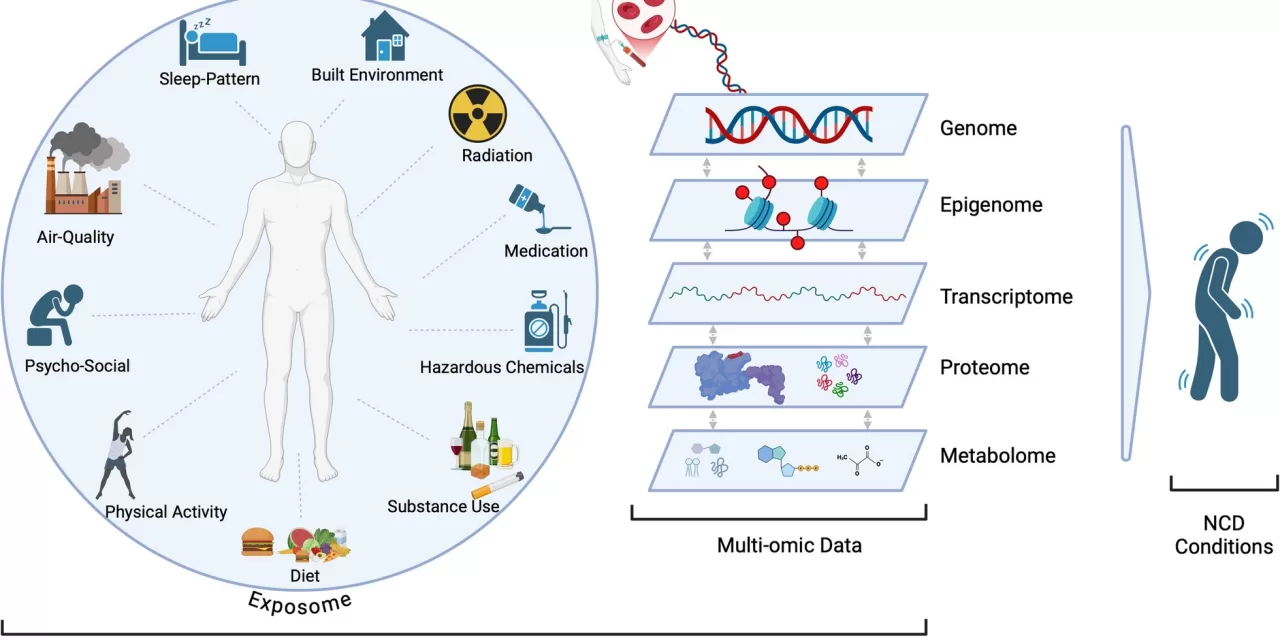An international team of researchers has underscored the importance of advanced analytical methods in multi-omics research to improve understanding of chronic diseases. Their review, recently published in Human Genomics, highlights how integrating molecular data across different biological layers enhances insights into genetic and environmental interactions influencing non-communicable diseases (NCDs). These diseases, including cardiovascular conditions, cancers, diabetes, and chronic respiratory ailments, account for over 74% of global deaths.
Key Findings from the Study
The study, co-led by Dr. Robel Alemu, a Visiting Research Fellow at the University of Adelaide Medical School and a postdoctoral researcher at UCLA, along with NHMRC Emerging Leadership Fellow Associate Professor Azmeraw Amare, examines the role of multi-omics in NCD research. Their scoping review assesses how these techniques advance disease research, the challenges in integrating complex datasets, and the necessity of greater diversity in genomic studies.
“Non-communicable diseases result from a combination of genetic predisposition and environmental exposures such as diet, pollution, and physical activity. The interaction between these factors, known as gene-environment (GxE) interactions, significantly influences disease risk and treatment responses,” explained Dr. Alemu.
By leveraging multi-omics datasets, including genomics, epigenomics, proteomics, and metabolomics, researchers can develop a more comprehensive understanding of biological systems affecting health and disease. This approach is revolutionizing precision medicine by enabling targeted treatments and preventive strategies.
Challenges and Future Directions
Despite its promise, multi-omics research faces notable challenges. A major limitation is the lack of diversity in genomic research, which reduces the applicability of findings across different populations. Currently, 85% of genome-wide association studies (GWAS) focus on individuals of European ancestry, leading to disparities in predictive accuracy for other populations.
“Expanding genomic diversity can help address these inequities and uncover clinically important variants, such as those identified in research on African ancestry that provided new insights into kidney disease and cholesterol regulation,” Dr. Alemu stated.
Other challenges include high costs, computational complexity, and the need for advanced tools to integrate large datasets. The review calls for international collaborations and equity-centered computational methods to ensure broader benefits from scientific advances.
The Role of AI and Machine Learning
Recent advances in artificial intelligence (AI) and machine learning have the potential to revolutionize multi-omics research by enabling the integration of complex datasets. However, issues such as data bias, model transparency, and privacy concerns need to be addressed to ensure responsible implementation.
“By developing AI-driven approaches that are equitable and transparent, we can unlock new possibilities for personalized medicine and disease prevention,” said Associate Professor Amare.
The study emphasizes the importance of expanding multi-omics research in underrepresented populations, strengthening research infrastructure in low- and middle-income countries, and establishing global standards for data sharing to accelerate discoveries and improve health outcomes.
Disclaimer: The findings presented in this article are based on a scoping review and should not be interpreted as direct medical advice. Readers are encouraged to consult healthcare professionals for personal health concerns. Further research and validation are necessary to translate these insights into clinical practice.












